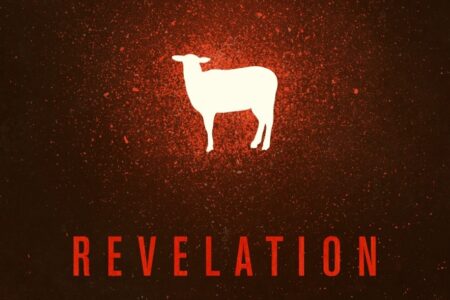“Counterfeit Worship” (Revelation 13:1-10)
Counterfeit Worship (Rev. 13:1-10) Many people search for a church to attend without ever asking the most important questions. They look for entertainment, a cool atmosphere, or even nice people. But the fundamental factor that should be considered is whether or not the worship is biblical. That question doesn’t only apply to the preaching, but to every element of a worship service. Worship should be guided and supported by Scripture from beginning to end. You might be unfamiliar with certain…
“The Perseverance of the Saints” (Revelation 12:13-17)
The Perseverance of the Saints (Rev. 12:13-17) God created everything and gave man dominion over it, but also the responsibility to “work and keep” the garden. When Adam neglected to guard the garden, the serpent deceived Eve tempting her to eat the forbidden fruit. Then she gave some to Adam. Prior to the fall, “the man and his wife were both naked and were not ashamed” (Gen. 2:25). After eating the fruit, “they knew that they were naked” (Gen. 3:7).…
“The Absence of Accusation” (Revelation 12:7-12)
The Absence of Accusation (Rev. 12:7-12) The presence of shame, in its many forms, goes well beyond the scope of a challenging emotional struggle. In his book, The Soul of Shame, Dr. Curt Thompson writes, “This phenomenon is the primary tool that evil leverages, out of which emerges everything that we would call sin.” Thompson argues that shame is at the root of all other negative emotions and it eventually effects the way we think and behave. For instance, our…
“The Backstory of History” (Revelation 12:1-6)
The Backstory of History (Rev. 12:1-6) Is it too soon to wish you a “Merry Christmas”? This passage makes for the perfect Christmas text. But before we get to it, let’s review. With the blast of the seventh trumpet the wrath of God fell upon unbelievers and the saints were gathered. We came to the end of the third cycle in Revelation. The letters to the seven churches was followed by the breaking of the seven seals, which was followed…
“The Seventh Trumpet” (Revelation 11:15-19)
The Seventh Trumpet (Rev. 11:15-19) The Church needs vision to survive. But, that needs clarification. I’m not referring to a catchy slogan that summarizes the church’s objectives. Many churches use a Vision Statement to define their purpose and how they will reach the culture. They quote Proverbs 29:18 “Without vision, the people perish!” Church planting strategists suggest coming up with a simple slogan that defines our goal and guides our mission. If we ignore this critical step, they warn that…
“The Enduring Witness of the Church” (Revelation 11:3-14)
The Enduring Witness of the Church (Rev. 11:3-14) Symbolism in apocalyptic literature is not meant to soften the impact of the passage. Revelation is filled with pictures and illustrations of the truth that magnify our sense of purpose and deepen our confidence in God’s plan. John is recording this Revelation from exile on the island of Patmos around A.D. 95. He had been banished there by the government. Whether he was preaching against the idolatry of the people in Asia…
“Safety in Numbers” (Revelation 11:1-2)
Safety in Numbers (Rev. 11:1-2) Two weeks ago we saw, from chapter ten, how John was commissioned by the Mighty Angel—a theophany of Christ portrayed with global dominion. John was re-commissioned to proclaim the revelation of judgment that he was receiving. Chapter eleven transitions from John’s personal commission to the church’s global mission. Some scholars consider this passage to be the crux of the entire book of Revelation because it forces us to pick a particular interpretive approach in order…
“The Grace of Giving” (2 Corinthians 8:1-15)
The Grace of Giving 2 Corinthians 8:1-15 Tonight we are learning about Christian giving. The grace of financial giving. There is only one other topic that could be preached that so directly strikes at our Old Man and fleshly sensibilities: overeating and obesity. We are going to examine what the Word of God says in 2 Corinthians 8. There are obvious pitfalls associated with the sharing of our finances. Giving unto God financially can be a reflection…
“Anticipating the Final Trumpet” (Revelation 10:1-11)
Anticipating the Final Trumpet (Rev. 10:1-11) Between the breaking of the sixth and seventh seal there was an interlude in chapter seven where John was given a vision of the church militant and triumphant. The saints on earth are promised protection from the harm of the judgments and given a vision of their future reign in glory. Following that same pattern, we have another interlude between the sixth and seventh trumpet. This interlude transitions from the demonic forces that were…



